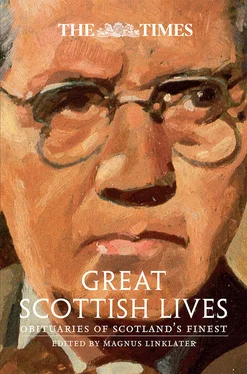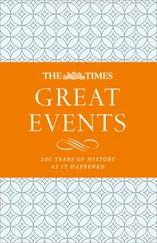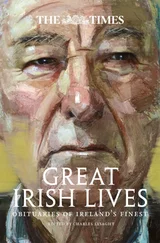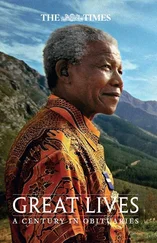In the latter end of 1809 he returned to the Peninsula, where he remained till 1811, and was present at the action of the Coa, where he had two horses shot under him; at Busaco, where he was shot through the face, and had his jaw broken and eye injured; at the battle of Fuentes d’Onor, at the second siege of Badajos, and a great number of skirmishes. In 1813 he served in a floating expedition on the coast of the United States of America, and landed a great number of times at Craney Island and other places. He served in the campaign of 1815, and was present at the storming of Cambray. Sir Charles, as is well known, commanded the force employed in Scinde, and, on the 17th of February, 1843, with only 2,800 British troops, attacked and defeated, after a desperate action of three hours duration, 22,000 of the enemy strongly posted at Meeanee. On the 21st of February Hydrabad surrendered to him; and on the 24th of March, with 5,000 men, he attacked and signally defeated 20,000 of the enemy posted in a very strong and difficult position at Dabba, near Hydrabad, thus completing the entire subjugation of Scinde. Early in 1845, with a force consisting of about 5,000 men of all arms, he took the field against the mountain and desert tribes situated on the right bank of the Indus to the north of Shikarpore, and, after an arduous campaign, effected the total destruction of these robber tribes.
In 1849 Sir Charles was appointed Commander-in-Chief of the Forces in India, but this position he did not long retain. For his services at the Corunna he received the gold medal, and also the silver war medal, with two clasps, for Busaco and Fuentes d’Onor. Long and arduous as his military services had been, he found time for the more peaceful pursuits of literature, and was the author of works on the colonies, on colonisation, and military law, &c. Sir Charles was born in 1782, and consequently was 71 years of age.
Field Marshal Sir Colin Campbell – Lord Clyde
Distinguished soldier who held the ‘thin red line’ at Balaclava
15 August 1863
On the 20th of October, 1792, there was born in Glasgow a child in whose veins the gentle blood of the Highland lady commingled with that of the Lowland mechanic. No ray of hope or fortune illuminated his humble cradle; but by his own right hand, and by the exhibition of qualities which have raised nameless lads to fortune before now, that child came to fill a place among the foremost soldiers and highest dignitaries of the day. At a very early age Colin Campbell was taken from Scotland and put to school abroad and in England, and for many years he never revisited his native land.
As Ensign in the East Norfolk Regiment, he was taken to a military outfitter’s − a pigtail was attached to the back of his head, a tight-fitting, epauletted, short-waisted, red coat covered with lace, a pair of leather knee-breeches, and betasseled Hessian boots were also duly provided for him, and he was sent off the same evening to Canterbury to join the 9th Regiment of Foot, which may be said to have commenced its military career. He had no time to enjoy the pleasure of his fine uniform, for the regiment marched the next day to embark for the Peninsula; in later years he was wont to recall the miseries of his first march to Margate in his leather tights and Hessians, and to declare that he endured more pain in that unaccustomed, and unsuitable, attire than he ever knew in his long afterlife of march-making.
For three weeks from the time when he had quitted the schoolboy’s desk at Gosport he saw the French infantry cresting the hillsides of Vimiera, and took part in the opening actions of that series of campaigns which, after many checks and some reverses, led to the liberation of thankless Spain from the yoke of Bonaparte. Scarce landed from the transport which carried him from the shores of Spain, he was ordered off to participate in the shame, suffering, and disasters of the Walcheren expedition in 1809. The fever struck into his body so keenly that, until he went to China 30 years afterwards, “Walcheren,” as he said, “was with me every season.” From Walcheren he returned to Spain in 1810, where, with better fortune and guidance, he shared in the battle of Barossa in March, 1811, and the defence of Tarifa in January 5, 1812; and in 1812 he was transferred to a corps of the Spanish army, with which he was actively employed against the French in a long series of harassing skirmishes and operations. He was particularly struck with the Spaniards’ powers of marching, their great sobriety and frugality. In 1813 he joined the Duke of Wellington’s army again, and plunged into the thickest of the hard fighting which took place in that memorable year. He passed unscathed through Vittoria, the greatest of our victories after Waterloo, but in the desperate encounter at St. Sebastian he received two wounds. On the 9th of November, 1813, he became a Captain by brevet, and in that position had added to his wounds a bullet path through the thigh, received at the passage of the Bidassoa, which remained for 12 years. By the time he left France and proceeded to America, to serve against the Federal Government in 1814, he bore as many marks as the body of the saint who gave the name to the fortress where Sir Colin’s wounds spoke for and returned themselves against his will; for an actual sabre slice, a thorough bayonet stab, and an ingoing bullet put all modesty to shame and insisted on mention in the despatches.
He had now been transferred to the 60th Rifles, and when the brief war was over in which we drove the President out of Washington after the “Races of Bladensburg,” and were beaten at New Orleans, Colin Campbell was left on the same rung of the ladder of promotion, and he sturdily but not contentedly hung on it till he was 33 years of age − a Captain still. In 1823 he served as Brigade-Major, then obtained a sum to purchase his Lieutenant-Colonelcy.
When the interests of commerce and civilisation made it necessary for Great Britain to declare war against China in 1812, Colin Campbell went out in command of the 98th, and for 11 months his regiment was packed aboard a man-of-war, with a neglect of all consideration for health and comfort, which cruelly avenged itself upon officers and men. From China to India is a common step, though it is not attended with benefit to the constitution. Colonel Campbell had a short repose in Hindostan, but it was broken by the outbreak of the Sikh war. In virtue of his seniority he was appointed to the command of the Third Division of the army of the Punjab, and he soon flamed out on the field with more than the old Peninsular fire, and led his men with such skill that in all the great battles in which we stood foot to foot with the sternest foe we ever met or are likely to meet in India, his soldiers appeared in the very crisis of the fight. However, his critics were not disposed to be more favourable to him because he did not conceal his ill opinion of the Indian army, and considered the Sepoys as the mere bamboo of the lance, which was valueless unless it were tipped with the steel of British infantry. He was not regarded with favour by the Indian authorities, and his command on the frontier was terminated.
Colin Campbell was now, however, on the upward path. The ship of the State drifted into the Russian war, and from her decks, in 1834, marched the Glasgow boy at the head of three kilted and plumed regiments, which, fortunate in their chief and in their place, won much honour with little loss at the Alma, and almost as much reputation, in so far as one of them was concerned, with no loss at all on the famous day of Balaclava, when the thin red line of the 93rd was opposed to the Russian cavalry. Lord Raglan, to whom Sir Colin Campbell was not much known except by report, knew, however, that he was one whose eye never closed and whose hand never relaxed, and therefore he covered up the right flank of his army with the Highland Brigade, and gave their General the charge of Balaclava and all its works. There he had, indeed, little of the glory of battle, but much wearying anxiety and incessant vigilance. He was overlooked for promotion, until he returned to the Crimea to take a command which would no doubt have worthily employed him had not peace abruptly prevented the campaign. He had been gazetted a Major-General in 1854. In the October of the same year he was appointed to the colonelcy of the 67th Regiment. On the 4th of June, 1856, he was made Lieutenant-General, and in that rank he fairly settled down, almost surprised at his late honours, if not quite satisfied with the part he had played in the great war wherein they were bestowed.
Читать дальше












